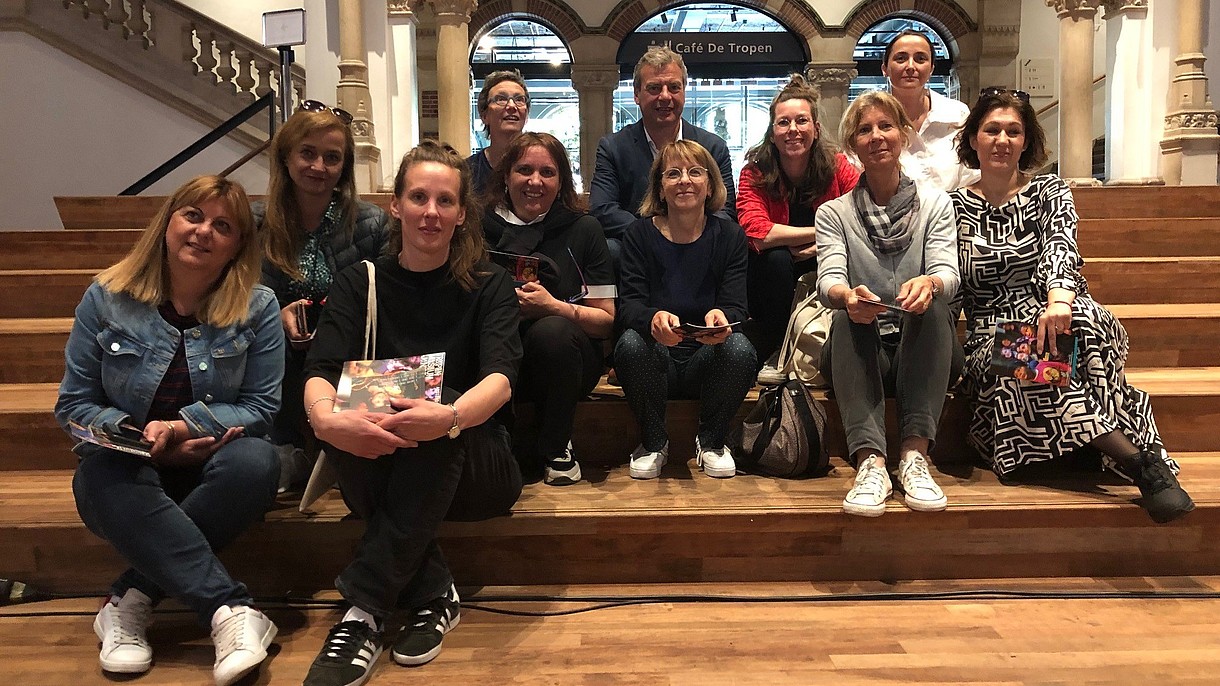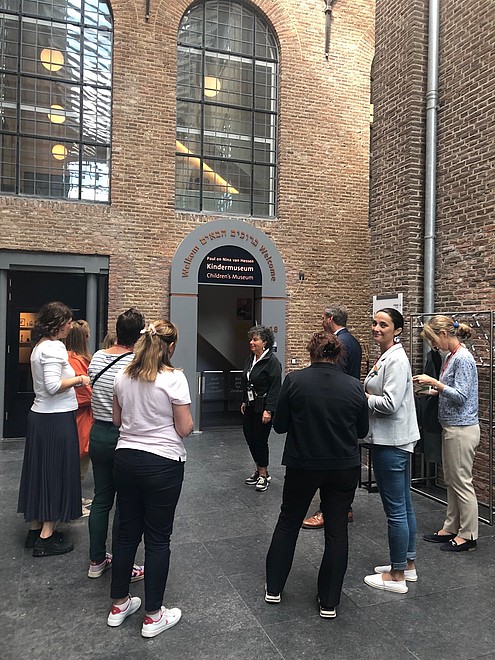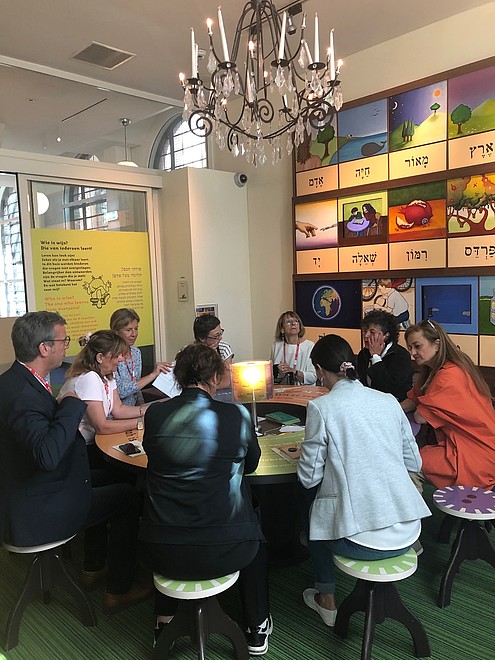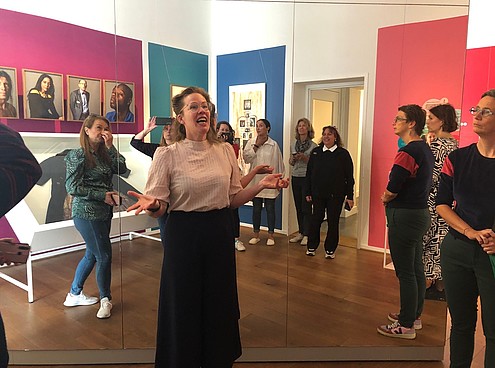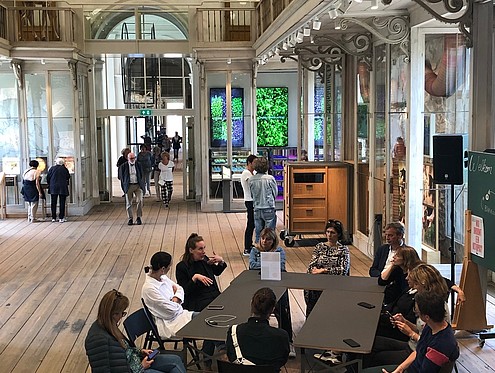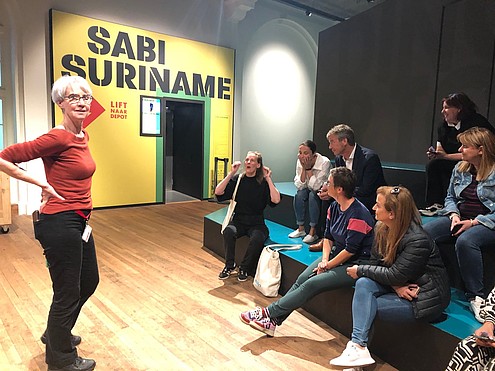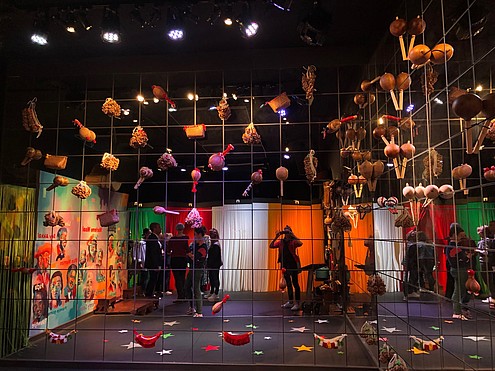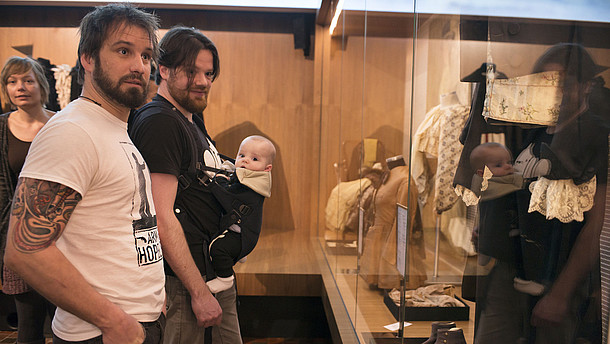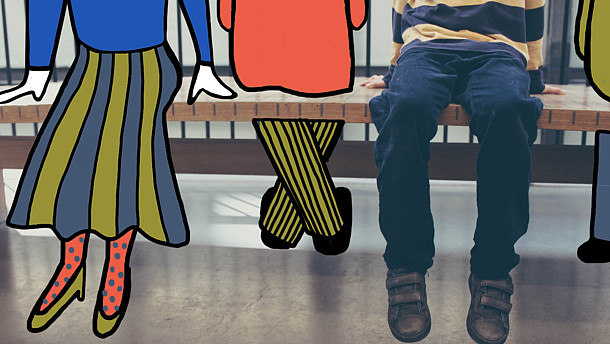I ASK is a practical, step-by-step method for guided tours and educational programmes in museums developed by JCQ and TACT Advisors (NL). It aims at increasing openness for new knowledge and ideas so that visitors leave the museum with enriched experiences and more nuanced thinking about the themes addressed. I ASK invites museums to clearly articulate the impact they desire to have on their audiences and offers museum professionals tools to achieve their impact goals. The Working Group LEM are very thankful to I ASK-Trainers Petra Katzenstein and Judith Whitlau for sharing inspiring insights and inputs about the method. One of their main messages: “Be and stay open and try to open up other people. Learn from them, be interested in the person in front of you.”
On the second day, the programme included behind-the-scenes visits to other museums in Amsterdam and the nearby city Haarlem that all work closely with young audiences and families
Museum of the Mind | Dolhuys (Haarlem) - European Museum of the Year 2022 - invites to an interactive voyage of discovery into your own mind, and those of others. This museum is bursting with personal stories, art, and an expansive historical collection, straddling the boundaries between healthcare, art, and science. The Museum of the Mind also works with the I ASK method. The Group met with Jolien Posthumus, Project Coordinator of the mental health programmes and Creative Producer & Trainer of the Mindfulness programmes at Museum of the Mind. Thank you for the insight in this overwhelming work!
Groote Museum (Amsterdam) at ARTIS first opened in 1855 for members of the zoological society Natura Artis Magistra. It was then closed for over 70 years and just recently re-opened. Nowadays Groote Museum overturns outdated world views and makes us all insiders: part of the complete whole. The new museum takes you on a personal expedition, with your body as the starting point and shows you similarities with plants, with other animals, and even with microbes. Many thanks to Wessels for answering all the curious questions of the Working Group LEM participants.
Tropenmuseum Junior (Amsterdam) is the children’s museum of the Tropenmuseum. A dynamic design makes the exhibition area of the Sabi Surinam exhibition a completely different world that immerses children in it. The subjects come to life and children take an active part in the exhibition that encourages learning by doing. Worldwide connections and cultural diversity are eminent themes in the exhibition Sabi Surinam, Discover the World Behind Things. Surinam’s diversity, with ancestral roots in four continents is the result of a shared colonial past that lives in the present. A big thank you to Liesbet Ruben, Exhibition Maker and Senior Associate at the Tropenmuseum Junior, who rounded off the day by letting the group immerse in this special world.
NEMO’s Working Groups provide an opportunity for members of NEMO to get connected, learn and share experiences through organised study visits and events. The groups also inform the wider museum sector by publishing studies, recommendations and reports. At the moment NEMO has three active Working Groups:



